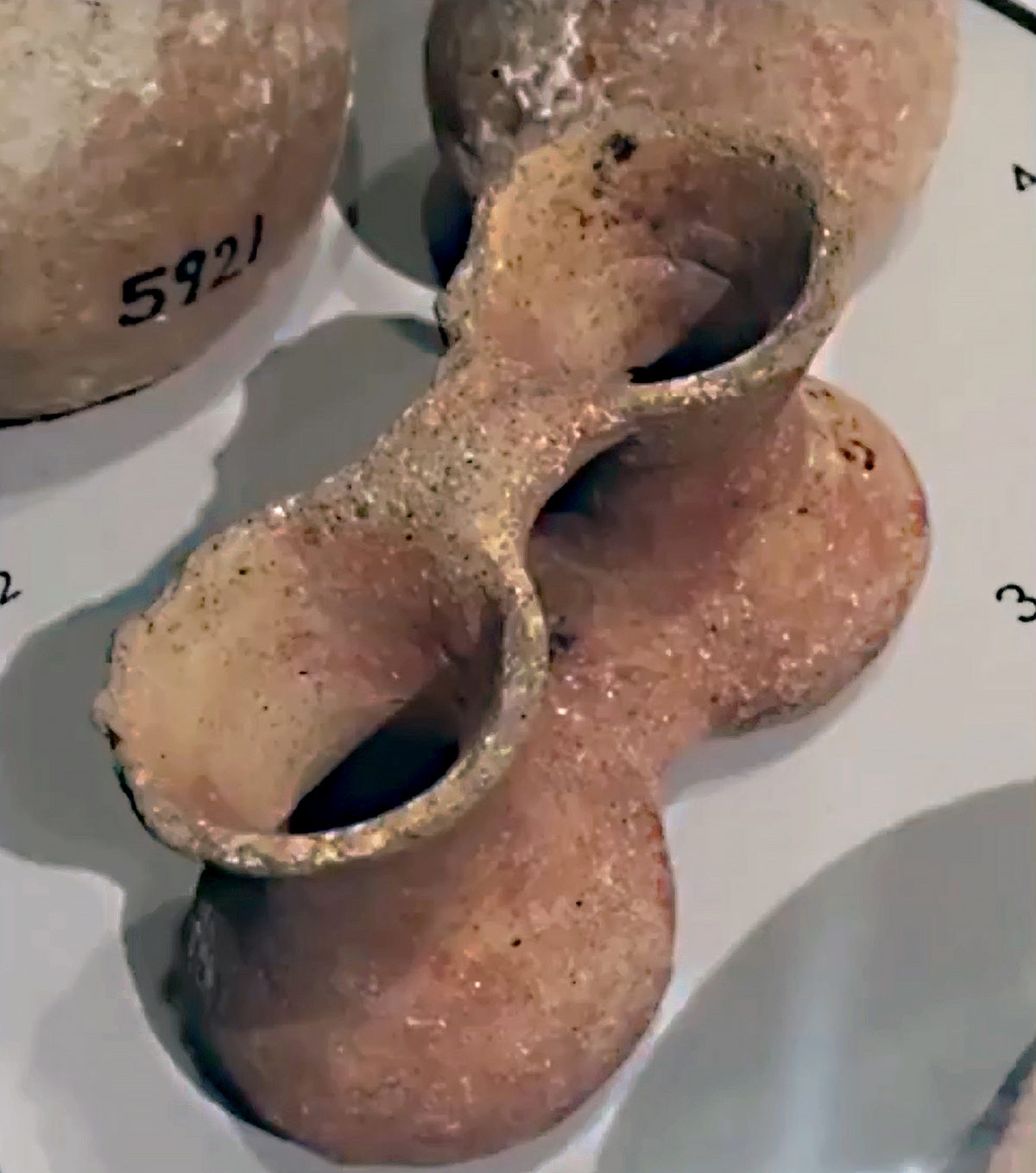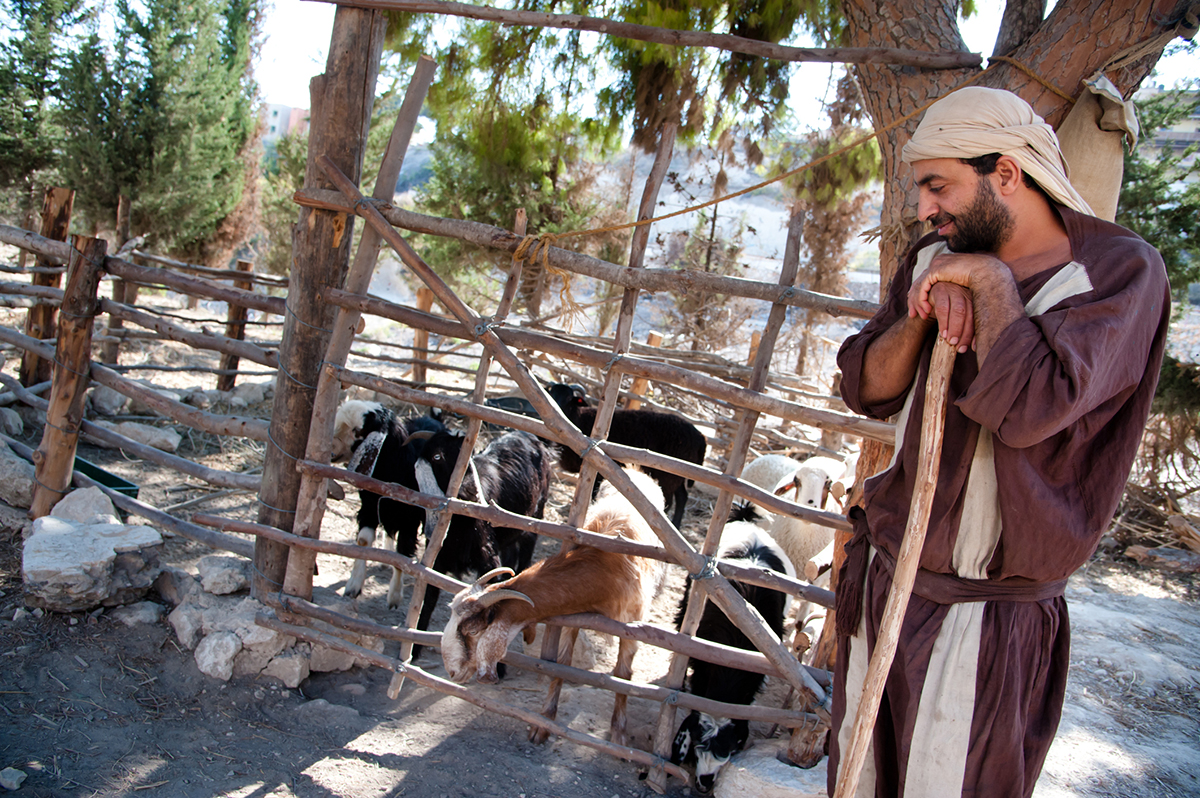

by Luke Chandler
Synopsis: Why does the Bible refer to Canaan as a land of "milk and honey" instead of "vines and olives"?
The Bible describes Canaan as a land of "milk and honey" sixteen times before the conquest, but the term disappears after the Israelite settlement. This may not surprise us since Canaan's agriculture was centered on olives, vines, and grains. Biblical mentions of milk or honey pale in comparison with mentions of those crops, so why did God use less-common products like honey and milk to describe the Promised Land?
Let us first note that milk and honey may be figurative terms to highlight the land's richness. Milk from sheep and goats was usually converted into longer-lasting cheese or yogurt. Pastoralists, like the Hebrew people, understood that good milk production depended on plentiful grazing for flocks, and Canaan's fields, valleys, and hillsides had ample space. Honey's natural sweetness was always in demand in ancient times. Its very taste was associated with happiness and luxury (1 Sam. 14:27; Ps. 19:9-10; Song of Sol. 4:11; etc.)
Archaeology may shed some light on this question. Excavations of ancient tombs offer an insight into the descriptive use of "milk and honey." Many ancient people were buried in rock-hewn caves or shafts. Funerary vessels, which are pottery jars containing food products, valuables, or spices, were often placed alongside the bodies during burial ceremonies. King Tut's tomb is an exaggerated example of this practice, but we observe the custom throughout the Ancient Near East, including the region of Canaan.
Residue analysis from excavated funerary vessels shows some contained honey or milk products. These particular jars have usually been found in the tombs of ancient nobles or the wealthy. In other words, honey and milk seem to have been cultural markers for the upper class.
If milk and honey were, indeed, associated with the nobility, a prosperous ruling class, then how did the promise of a land flowing with these products sound to Hebrew ears? Probably something like, "In Canaan, all of you can live as nobles." Egypt made all of them equal as slaves. God was providing a land that could elevate everyone to nobility.
A promise of nobility is also given to the Hebrews in Deuteronomy 28.
The Lord will establish you as a people holy to himself, as he has sworn to you. .. All the peoples of the earth shall see that you are called by the name of the Lord, and they shall be afraid of you. And the Lord will make you abound in prosperity. .. The Lord will open to you his good treasury. .. And you shall lend to many nations, but you shall not borrow. And the Lord will make you the head and not the tail (Deut. 28:9-14, ESV).
God did not merely promise the Hebrews a better place to live. His blessings were designed to transform them into an elevated people. These promises of nobility foreshadow our covenant, for the Lord Jesus also elevates us.
You are a chosen race, a royal priesthood, a holy nation, a people for his own possession, that you may proclaim the excellencies of him who called you out of darkness into his marvelous light (1 Pet. 2:9).
Understanding more about the "milk and honey" promise helps us better understand our covenant in Christ. Its real purpose is not to bring about a better life, but to elevate us to the nobility of our King.
Author Bio:
Luke is an elder and an evangelist with the North Terrace Church of Christ in the Tampa, FL area, where he and his wife, Melanie, are raising their five children. He has taught Archaeology at Florida College and participated in ten archaeological expeditions in Israel under the auspices of the Hebrew University of Jerusalem. Luke leads regular tours to the Bible lands and Europe. The church website is northterracechurch.com. His Bible & Archaeology blog is lukechandler.wordpress.com. He can be reached at lukechandler@verizon.net.

Image 1: A funerary vessel with traces of honey and milk products

Image 2: Nazareth Shepherd Stock photo ID:96003788.

Image 3: Goat Herder Stock photo ID:458098431